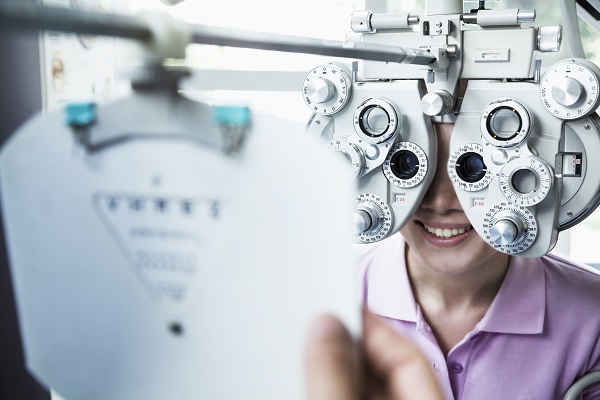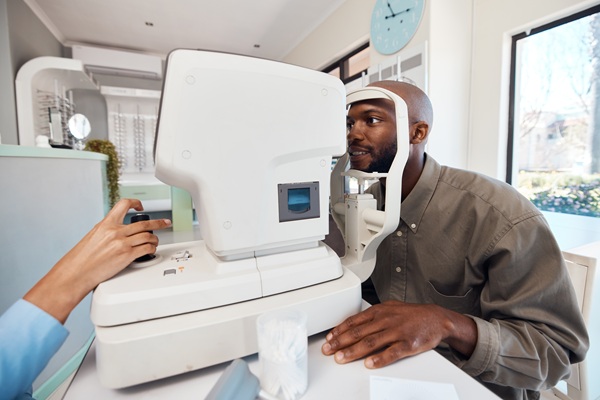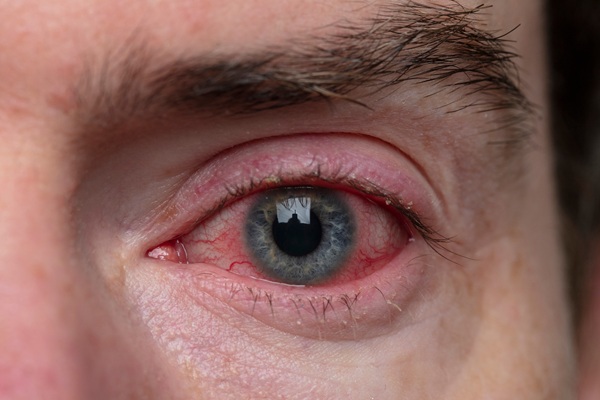How Often Should I Have an Eye Exam?

While most people know to visit the dentist twice a year and the family doctor on an annual basis, many do not think to schedule an eye exam. In fact, most people only consider visiting an eye doctor if and when their vision begins to deteriorate. That said, eye exams are an essential aspect of a person's overall health. These assessments help to detect vision problems in the early stages, when most treatable. Regular exams can also help to correct or adapt to vision changes so the patient can continue to live a comfortable and fulfilling life.
When to get an eye exam, by age
How often a person should undergo an eye exam is dependent upon a number of factors. Age, overall health and risk factors all play a role in the development of vision problems. Generally speaking, there are certain guidelines which all individuals should follow.
Babies and toddlers
Pediatricians try to perform eye assessments on patients when they are still fairly young. Many children undergo the first eye test as young as one year old. Pediatricians perform these tests to check for common eye conditions that typically develop early in life such as crossed eyes, lazy eyes and misaligned eyes. If the test results reveal an issue or if the pediatrician notices symptoms suggestive of an eye condition, the doctor may recommend that the child undergo more comprehensive testing.
School-aged children and teens
As children age, it becomes easier to discern whether a vision problem exists. For instance, a young child may perform poorly in school despite demonstrating a strong capacity to retain information. A teen might complain of regular headaches. If a child or teen exhibits any symptoms of vision problems, an eye exam may be in order. This is also true if there exists a family history of certain eye conditions such as farsightedness, nearsightedness or vision loss.
If a child or teen has diabetes, regular eye exams are also recommended. Diabetes is one of the most common causes of vision loss.
Adults
How often adults should undergo eye exams varies. Adults who have no history of vision problems and are fairly healthy should follow this schedule for exams:
- Every five to 10 years between ages 20 and 30
- Every two to four years between ages 40 and 54
- Every one to three years between ages 55 and 64
- Every one to two years after age 65
That said, if an adult of any age wears glasses or contact lenses, eye doctors recommend more regular eye exams. "Regular" means exams every one to two years. If there is a family history of vision loss or eye disease or if a person has a chronic disease that puts them at risk of vision loss, they should also undergo routine exams.
Other risk factors that may call for an increased frequency of eye exams include taking medications that have visual-related side effects and working in an occupation that strains the eyes. A previous eye injury is also a risk factor for vision problems.
Conclusion
Vision problems can significantly affect the quality of one's life. For this reason, a person should undergo an eye exam at the recommended intervals to catch any problems early.
Request an appointment here: https://www.texasoptical.net or call Texas Optical at (214) 771-7333 for an appointment in our Dallas office.
Check out what others are saying about our services on Yelp: Read our Yelp reviews.
Recent Posts
Contact lens exams are fundamental to maintaining clear vision and promoting overall eye health. Many individuals rely on contact lenses for daily activities, sports, and social events, yet consistent monitoring of lens fit and eye condition often receives less attention than it deserves. An optometrist specializing in evaluating the cornea, tear film, and general ocular…
Red, irritated eyes can result from something as simple as fatigue or dryness. However, persistent or severe symptoms may indicate a more serious condition requiring red eye treatment from an optometrist. Understanding when those everyday symptoms become something more serious is key to protecting long-term vision and avoiding complications. Catching the signs early on and…
Vision health is an important part of your everyday life. When urgent and unexpected issues arise, you must seek emergency eye care from an optometrist. Whether the issue results from trauma, infection, or sudden changes, immediate attention from an optometrist can prevent complications and preserve your long-term ocular health.Individuals may need emergency eye care for…
A myopia optometrist can help manage and slow the progression of nearsightedness, especially in children and young adults. Nearsightedness, or myopia, causes distant objects to appear blurry while close-up vision remains clear. Without proper care, myopia can worsen over time, leading to higher prescriptions and an increased risk of eye health problems.Myopia occurs when the…


